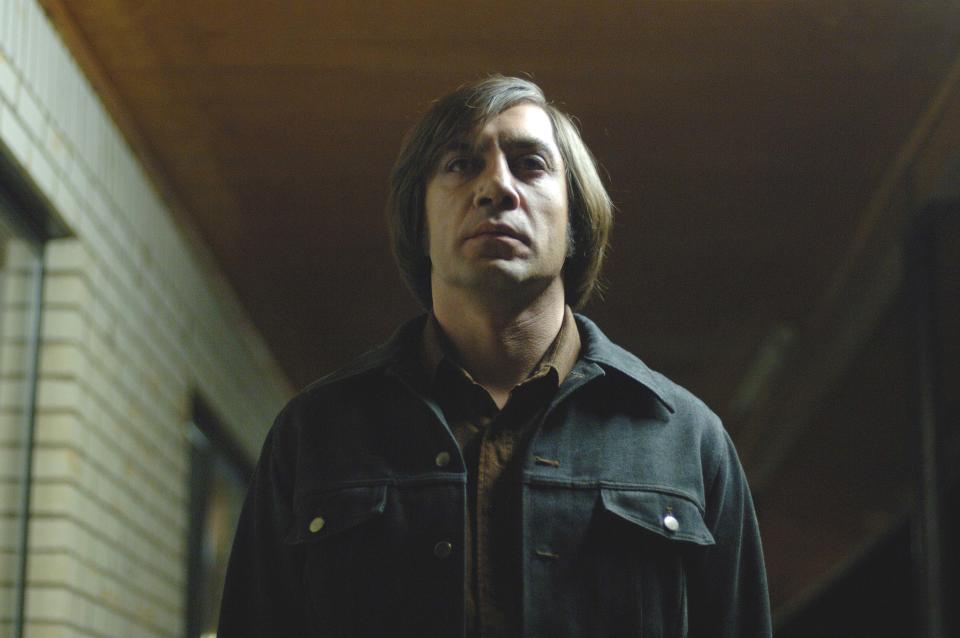5 great films set in Texas
LOS ANGELES (AP) — The South by Southwest film festival begins this weekend in Austin, Texas, an event I've had the pleasure of attending and being involved with for about a decade now. I always look forward to the chance to see old friends from college and the film world and, just as importantly, see an eclectic array of great movies.
Texas has been the setting for so many important films over the years, it was nearly impossible to pick just five. I easily could have added five more and still not have been done — but then the list would have been too big. Then again, maybe that would have been fitting given the subject:
— "The Last Picture Show" (1971): Everything about this coming-of-age drama just oozes Texas. Peter Bogdanovich, working from the novel by Larry McMurtry (with whom he co-wrote the script), creates a detailed, lived-in sense of place. High school football, cars, girls, the local movie house — sure, these things mattered elsewhere in the early 1950s. But the sense of lonely, small-town West Texas life depicted here is just so vivid, with its leisurely pace and big skies. Young Jeff Bridges and Timothy Bottoms have an easy chemistry as high school seniors and best friends, and Cybill Shepherd couldn't possibly be more vibrantly beautiful as the girl they both adore. Nominated for eight Academy Awards (including best picture), it won two: for supporting actors Ben Johnson and Cloris Leachman.
— "No Country for Old Men" (2007): Joel and Ethan Coen's debut film, "Blood Simple," also could have qualified here. But for me, this crime thriller along the Rio Grande is their masterpiece — my pick for the best movie of the 2000's and one of the five films I selected on our "Movies That Made Us Critics" episode of "Ebert Presents At the Movies." Working with their usual cinematographer, the great Roger Deakins, the Coens present a haunting, beautifully bleak landscape. They've crafted a contemporary Western in which you can feel the heat of the baking sun and the scratch of scrub brush. The dialogue (based on Cormac McCarthy's novel) is just dead-on in its cadence, color and specificity. And Tommy Lee Jones, who was born and raised in the state, is Texas personified as an aging small-town sheriff on the hunt for a killer. "No Country" won four Oscars including best picture.
— "Friday Night Lights" (2004): Peter Berg's film completely gets the obsession with high school football in Texas. Then again, he had great source material from which to work: H.G. "Buzz" Bissinger's excellent 1990 best-seller of the same name, which captured the fact that this truly is a way of life with eloquence and evocative detail. Literally every store shuts down on Friday nights and the 20,000 people packing into the stadium all have some opinion on how the coach (Billy Bob Thornton) should run the team. This particular team is the Permian High School Panthers in the West Texas city of Odessa, which Berg depicts in stripped-down and bleached-out fashion, making the already parched landscape of oil fields and dust seem even more harsh and lonesome.
— "Slacker" (1991): This movie only could have been made in Austin. It captured a specific kind of youth culture in a specific place and time — when Austin was still weird — and it played a crucial role in the rise of independent cinema in the early 1990s. This early offering from Texas native Richard Linklater, a director who's become synonymous with Austin's filmmaking scene (alongside Robert Rodriguez), is a virtually plotless amble around the state's capital and home of the University of Texas. The seeds for Linklater's talky, philosophical oeuvre are clearly being planted here. Characters and story strands come and go casually: a couple of guys analyzing "Scooby-Doo" over beers, a young man (Linklater himself) postulating about fate in a cab, a woman carrying a jar that she claims contains Madonna's pap smear. Nothing happens and everything happens and it's hypnotically funny.
— "The Texas Chain Saw Massacre" (1974): The original, of course — with chain saw as two words, not one — and not the 2003 remake or the even more needless 2006 origin story. One of the earliest films from Austin native and horror master Tobe Hooper, this became hugely influential on the genre, with its grainy, B-movie visuals and slow, silent suspense. And it's still as frightening today as it was back then. You know the story: Five friends on a road trip fall victim to a family of cannibalistic slaughterhouse workers, led by the chainsaw-wielding Leatherface. Shot in Austin and nearby towns, it provides a sense of isolation that feels peculiarly Texan; the state is so vast that you can imagine anything happening in its many remote pockets. And, of course, there's all that delicious barbecue.
___
Think of any other examples? Share them with AP Movie Critic Christy Lemire through Twitter: http://twitter.com/christylemire.



